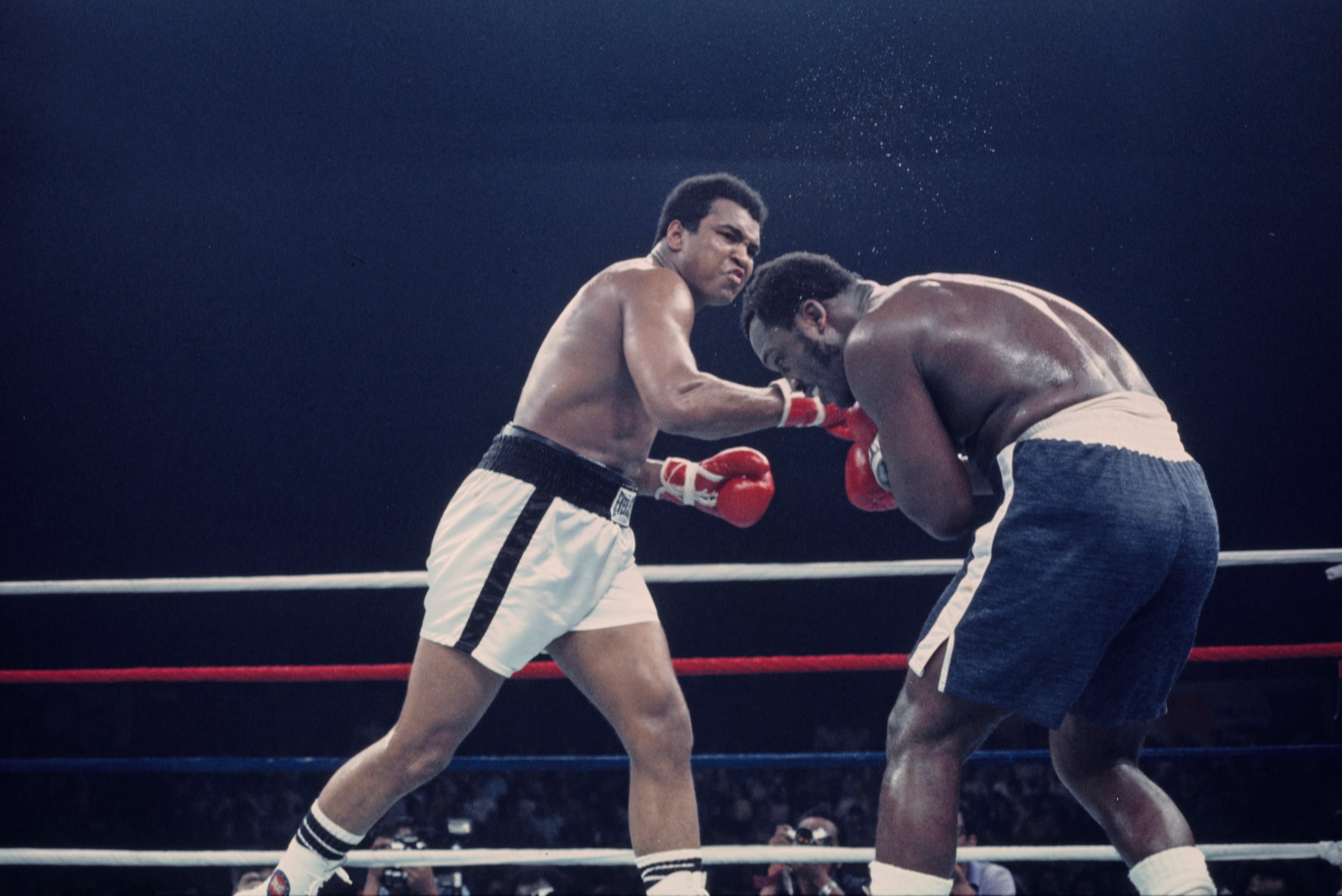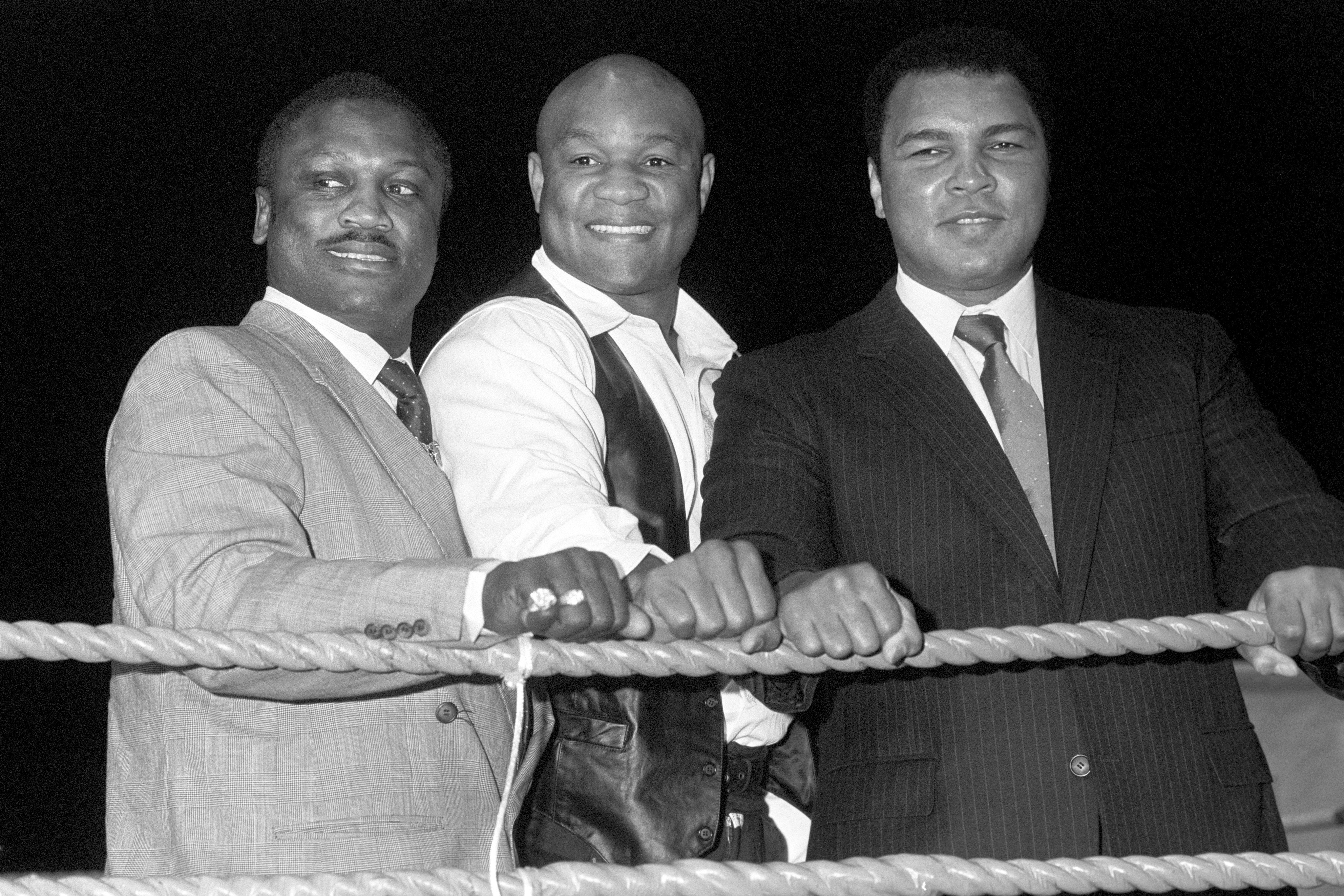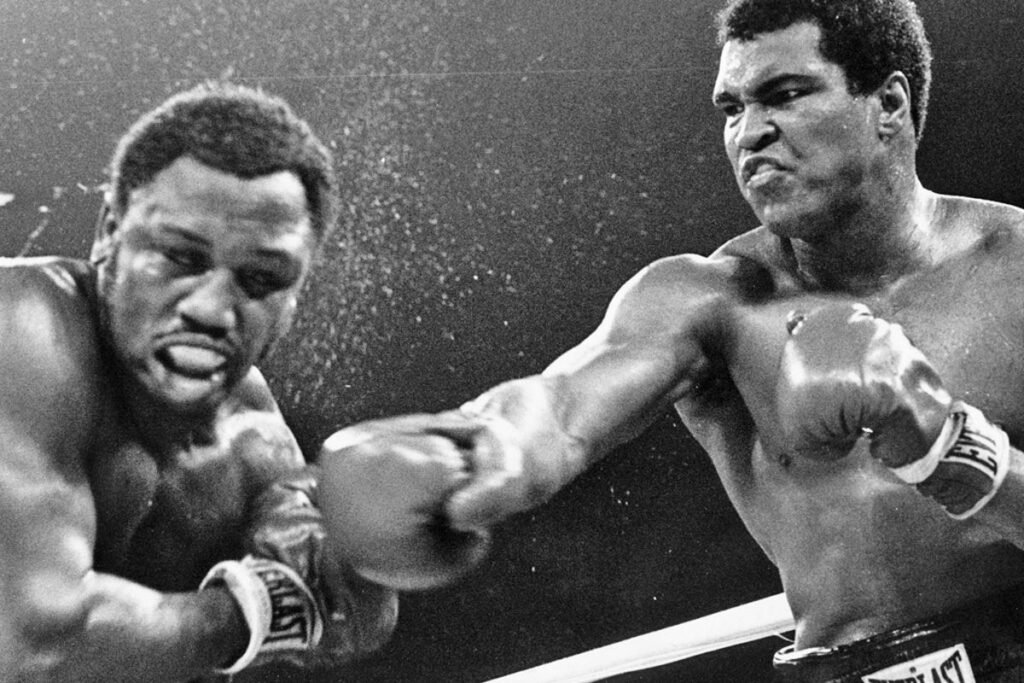The “Thrilla in Manila” is not just about Muhammad Ali’s victory in his third and final fight with Joe Frazier, 50 years ago.
In the months before the fight, Ali set a cruel agenda and, on the night, against a backdrop of 50-degree temperatures in the ring, the pair took suffering to a new level. It was their “shared agony”. It was also a level that few have come close to since that morning in the Philippines.
It was Ali who walked from the ring a winner, bruised, permanently damaged, but the man with his hand raised high above the dejected figure of Frazier. The stories are told and retold in the boxing business and each year the eyewitnesses diminish, but the fight’s status remains epic in the endless retelling.
Frazier never quite gets the respect he deserves for his role in the great encounter. And perhaps that is true of Frazier’s role in Ali’s life and his position inside the boxing pantheon.
They were 1-1 before the Thrilla, and Frazier had, significantly, won the Fight of the Century back in 1971. In 1974, Ali took a relatively low-key second fight on points after 12 rounds back at Madison Square Garden, and that led to the Thrilla. Well, that and a massive infusion of money from President Marcos of the Philippines and his shoe-obsessed wife, Imelda.
Somewhere between the fight being announced and the first bell, Ali had put gorilla, Manila and “thrilla” in a thousand soundbites. He had also settled on Frazier being too “dumb” and too ugly to be the champion. Frazier tried to get on with business, ignoring the latest insults. It was all part of the Ali act, the boxing forum declared.
Frazier, meanwhile, showed pictures of his children and asked: “Do they look ugly?” Looking back now, with 50 years to consider Ali’s tactics, it is hard to ignore the plea in Frazier’s words. All he wanted was a little respect. He would get it after the fight.
The event was covered from ringside by the some of the finest boxing writers of any generation, and that solid legacy of written tribute has added to the fight’s place in the hearts of all boxing fans. The boss scribes, as they were known, sat and recorded the life and fight of both boxers during the week and the morning of the fight. They captured the chaos of Ali’s love life, the desire in the Frazier camp, and once the bell sounded, they embraced every second of the fight. Their typewriters must have been deafening in the first few rows.
Ali and Frazier fought for “the championship of each other”, wrote Jerry Izenberg from ringside. Jerry, now 95, is still alive. In the sixth round, several of the writers wrote about the extraordinary exchange between the two boxers – this time words, not punches.
Enjoy 185+ fights a year on DAZN, the Global Home of Boxing
Never miss a fight from top promoters. Watch on your devices anywhere, anytime.
Buy Now
ADVERTISEMENT. If you sign up to this service we will earn commission. This revenue helps to fund journalism across The Independent.
Enjoy 185+ fights a year on DAZN, the Global Home of Boxing
Never miss a fight from top promoters. Watch on your devices anywhere, anytime.
Buy Now
ADVERTISEMENT. If you sign up to this service we will earn commission. This revenue helps to fund journalism across The Independent.
Frazier catches Ali with the best left hook he ever threw, and Ali’s head turns like it is on a swivel. Ali then looks at Frazier and says: “They told me Joe Frazier was washed up.” Frazier looks up and responds: “They lied.” It is gold.
At the end of the 10th, after Frazier had really hurt an exhausted Ali, they all wrote that Ali couldn’t look his coach Angelo Dundee in the eye. They wrote about the exchange where Ali’s corner slapped him with ice and pleaded. It was a call to war in that corner, and he listened.

At the end of round 13, everybody could see the concern in Eddie Futch’s face; Frazier’s trainer knew that his man, whose eyes were both close to shut, was in desperate trouble. “I can’t pick up his right,” Frazier told Futch.
And then there was a moment – a moment when time stood still for Futch. He looked across at Ali, he looked at his man, and he decided that he would give Frazier just one more round. Futch had been involved in death fights; he knew what could happen if a man went out just one round too many.
Frazier rose – one eye closed, the other nearly shut – and went at Ali. And Ali had so little left. It was incredible, savage, brutal, basic, and truly magnificent.
The bell to end the 14th round was also the bell to end boxing’ greatest rivalry. It was also the bell to end the best of each man; they were never the same again. Not even close.

Frazier sat down, Ali slumped down. The 60-second break ticked away. Ali tried to claim that he was ready to quit. He was not, trust me. That was him being kind. Ali’s men – Dundee and especially his business manager Gene Kilroy – know the truth.
Futch looked down at Frazier, a pitiful sight. “Joe,” he said, “I’m going to stop it.” Frazier pleaded to continue and then Futch leaned in close and uttered one of boxing’s most iconic sentences: “Sit down, son. It’s all over. No one will ever forget what you did here today.”
That is mostly true, but occasionally we must force ourselves to remember Joe Frazier and what he did on 1 Octber 1975.
Read the full article here



